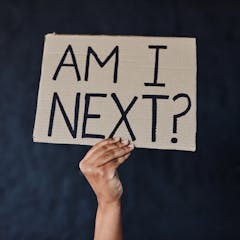
Articles on African National Congress (ANC)
Displaying 21 - 40 of 441 articles

South Africans are actively challenging the criminalisation of the state. Many of the revelations about fraud, corruption and nepotism come from principled whistle-blowers within the state.

A 1971 law, and the parallel growth of an illegal economy, shaped South Africa’s unique cannabis landscape.

Mzala’s distinctive intellectual contribution combined a sophisticated grasp of revolutionary theory with the reality of ethnic nationalism.

Year after year, challenges have distracted the country from its agricultural expansion goals.

A younger generation of feminists will remember her, above all, for her remarkable championing of the struggle against patriarchy.

The decision is likely to be relied on by courts to order the Department of Correctional Services to grant offenders parole.

The activist is today the subject of songs, sculptures, an annual lecture and even a new musical.

Stable coalitions will depend on strong democratic values being embedded among political elites.

In South Africa coalitions are weaponised as extensions of elections.

Soon after it was established in 1932 Orlando became a mecca of black urban culture and liberation politics.

A policy intended to help the majority of South Africans improve their lives has instead been abused to benefit only a few.

External changes, including the end of the Cold War, helped lead to the ending of apartheid. Gorbachev played a major role in that process.

The pioneering role she played, and the sacrifices she made, extended well beyond the famous 1956 Women’s March.

The deliberations were characterised by disingenuous, counter-factual policy pronouncements, and de facto denials of the ANC’s culpability in causing many of the current problems facing the country.

The truth is that there are no easy and quick fixes, such as the governing party’s recent castration idea, which falls short on a range of scores.

Mbeki has successfully transitioned from being an old horse of South Africa’s governing ANC to a highly venerated and in-demand African elder statesman.

Historically, most mass shootings in South Africa have been associated with three main things: gang conflicts, rivalries in the minibus taxi sector and factional or inter-group feuds.

Robert Sobukwe was once perceived to possess more revolutionary potential than Nelson Mandela.

Land reform had not been held back by the constitution but by capacity constraints and a lack of political will.

The famous writer turns 70 this year. She is driven by how South Africans see and hear one another.
